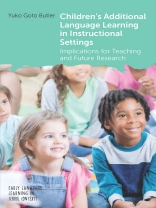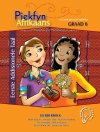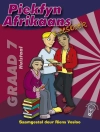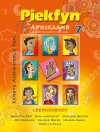This book provides the first comprehensive overview of young children’s language learning in pre-primary and primary education. It collates research to date on language development and pedagogy among children learning a language in addition to their home language(s) in instructional settings, providing readers with a thorough understanding of the topic and directions for further study. The book promotes a learner-centered approach to research and teaching and encourages critical reflection on how best to conduct research among children. It recognizes the substantial diversity of young language learning experiences and pays attention to individual differences and variability in children’s language development, embracing an ecological perspective sensitive to contextual factors. Closing the gap between research and practice, each chapter opens with pedagogical or policy-related questions, explores relevant theories and research findings from instructed second language acquisition, and offers discussion questions and recommended reading for further reflection and study. This will be invaluable reading for all those who are undertaking research and working with young language learners.
Spis treści
Abbreviations
Introduction
Chapter 1. Exploring Children’s Additional Language Learning in School
Why understanding their development is so challenging?
Chapter 2. First Language Development and its Diversity
What do children know about and do with language before attending additional language classes?
Chapter 3. The Influence of Starting Age
Is 'the younger, the better’ true for additional language learning?
Chapter 4. The Roles of Cognitive Development and First Language
What distinguishes children’s additional language learning from their first language learning and adults’ additional language learning?
Chapter 5. Written Language Development
How do children learn to read and write in an additional language?
Chapter 6. Tasks and Interactions in Language Classrooms
How do tasks and interactions promote children’s additional language learning?
Chapter 7. Affect and Social Factors
What do we know about the role of affect and social factors in children’s additional language learning?
Chapter 8. Digital Technology and Children’s Language Learning
How does digital technology influence children’s additional language learning?
Chapter 9. Teaching and Teachers of Young Language Learners
What is unique about teaching additional language to children?
Chapter 10. Assessing Additional Language Learning
What should teachers keep in mind when assessing children’s additional language learning?
Chapter 11. Learning Additional Languages through Academic Content
How do children learn both language and content?
Chapter 12. Future Directions for Research
What considerations are necessary when researching children’s additional language learning?
References
Discussion Questions and Additional Readings
Index
O autorze
Yuko Goto Butler is a Professor of Educational Linguistics in the Graduate School of Education at the University of Pennsylvania, USA. Her research explores young language learners, language assessment, and technology in language teaching. She serves on the advisory boards of Early Language Learning and Multilingual Education (ELLME) and Early Language Learning Research Association (ELLRA) as well as the editorial boards of several language learning and teaching journals.












